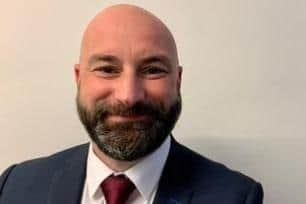Lincolnshire’s Police and Crime Commissioner wants to end motoring points ‘loophole’
and live on Freeview channel 276
People convicted of motoring offences can, in some circumstances, claim “exceptional hardship” if they lost their licence – such as impacting their working life or if they are a carer that needs their car for shopping.
However, Marc Jones said this was leading to “thousands” of dangerous drivers being let back on the road.
Advertisement
Hide AdAdvertisement
Hide AdSpeaking at a meeting of the Lincolnshire Police and Crime Panel, he said: “I think it’s totally inequitable that some people in this room might lose their licence if they were at 12 points and others would not, I’m just fundamentally opposed to that system.”


In his role as the Chairman of the Association Of Police and Crime Commissioners, Mr Jones is calling for the “anomalous” policy to be scrapped all together or majorly overhauled.
He is also asking for data on the loophole to be collated because “there is none” currently, though he reported that there were two drivers in England still on the roads with 68 points on their licence.
“I was giving a briefing to the House of Lords earlier this week, and there was some really compelling evidence from a parent who had lost their 23 year old child, because somebody that had plead exceptional hardship kept their licence and then gone on to kill,” he told Local Democracy Reporters after the meeting.
Advertisement
Hide AdAdvertisement
Hide Ad“Quite simply, I don’t accept that it’s a right to drive, it’s a privilege to drive and if you can’t follow the same rules that the rest of us have to follow, you shouldn’t be on the road.”
He acknowledged there were genuine “extreme circumstances,” but said it was just being applied too liberally.
It comes as Mr Jones helped launch a new Roads Policing Unit in a bid to crack down on dangerous driving in all forms.
“Around 50 people suddenly lose loved ones on our roads in Lincolnshire every year, around 2,000 people nationally and for seriously injured, it’s obviously significantly more.”